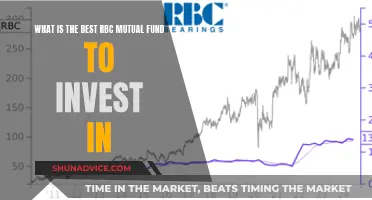
Pension funds are a long-term, tax-efficient savings plan that you can access in later life when you want to work less or retire. There are three types of pension funds: state, personal, and workplace pensions. When choosing a pension fund, it's important to understand how and where your pension fund is being invested by your pension provider, especially as you approach retirement age.
Workplace pensions are usually defined contribution schemes or defined benefit schemes. With a defined contribution scheme, your employer may offer a default investment fund, which is designed to reduce risk as you get closer to retirement. With a defined benefit scheme, your employer makes the investment decisions and takes on the risk.
Personal pensions, stakeholder pensions, and self-invested pension plans (SIPPs) allow you to have a say in how your money is invested. Your pension provider will offer a range of investment funds designed to invest your money in different ways over the years until your retirement.
When choosing a pension fund, it's important to seek independent financial advice and consider your risk tolerance, investment style, and long-term goals. Diversifying your investments across different assets, sectors, or geographic regions can help manage risk.
Some popular pension providers in the UK include PensionBee, AJ Bell, Penfold, interactive investor, Moneybox, Bestinvest, Hargreaves Lansdown, Moneyfarm, Netwealth, iSIPP, Vanguard, Wealthify, and Aviva.
| Characteristics | Values |
|---|---|
| Type | Workplace pension, personal pension, SIPP, or a combination of pension plans |
| Investment options | Stocks and shares, bonds, cash, commercial property |
| Investment style | Cautious, aggressive, balanced |
| Fund options | Default investment fund, investment fund |
What You'll Learn

Pension fund types: workplace, personal, SIPP, or a combination
Pension fund types vary, and there are several options to choose from, including workplace pensions, personal pensions, and SIPPs (self-invested personal pensions). Each type has its own advantages and considerations, and you can even combine different pension plans to suit your needs. Here's an overview of each type:
Workplace Pensions
Workplace pensions are typically offered by employers and can be of two types: defined contribution schemes and defined benefit schemes. In a defined contribution scheme, both you and your employer contribute to your pension pot, which is then invested in various funds. The value of your pension upon retirement depends on the performance of these investments. Most workplace pensions today are defined contribution schemes.
On the other hand, a defined benefit scheme, also known as a final salary scheme, is less common but still prevalent in the public sector. In this type of scheme, your employer promises a retirement income based on your salary and length of service. Your employer bears the investment risk and makes the necessary decisions to reach the pension target.
Personal Pensions
Personal pensions are arranged by individuals and are sometimes known as defined contribution or 'money purchase' pensions. The money you pay into a personal pension is typically invested in shares, and the pension you receive depends on factors such as the amount paid in, the performance of the fund's investments, and how you choose to take your money.
Personal pensions include stakeholder pensions, which must meet specific government requirements, and self-invested personal pensions (SIPPs), which offer more control over the specific investments that make up your pension fund.
SIPPs (Self-Invested Personal Pensions)
SIPPs work similarly to standard personal pensions but offer greater flexibility and a wider range of investment options. With a SIPP, you can choose and manage your own investments or pay a financial adviser to assist you. SIPPs can include investments in company shares (UK and overseas), collective investments, and commercial property, among other options.
Combining Pension Plans
It is possible to have a combination of pension plans, such as a workplace pension and a SIPP. This approach can provide a diverse range of investment options and help maximize your retirement savings. However, it is important to compare the costs and charges associated with each plan to ensure you are getting the most out of your contributions.
In conclusion, the best pension fund type for you will depend on your individual circumstances, risk tolerance, and financial goals. It is always recommended to seek independent financial advice to ensure you make the right choices regarding your retirement planning.
Smart Mutual Fund Investments with 10 Lakhs
You may want to see also

Investment options: stocks, shares, bonds, cash, commercial property
Pension funds are made up of a portfolio of assets in which contributions are invested. These include stocks, shares, bonds, cash, and commercial property.
Stocks
Stocks are a type of investment fund that focuses on company shares. Stocks can be a good option for those who want to take an active role in their pension investments and are comfortable with a higher level of risk. Stocks are also known as equities, and they can be a good way to seek higher returns.
Shares
Shares are a type of security that represents ownership in a company. When you buy shares, you own a piece of that company, and you have a claim on its assets and earnings. Shares are typically traded on stock exchanges, and their value can fluctuate based on market conditions.
Bonds
Bonds are fixed-income investments where individuals lend money to a company or government at a set interest rate for a specified period. Bonds are considered a relatively safe investment, as they traditionally pay a fixed interest rate, and the borrower promises to repay the principal amount at maturity. Bonds can be issued by governments, municipalities, or corporations to finance projects and operations.
Cash
Cash investments are short-term and include bank, building society, and local authority deposits. These types of investments offer low growth potential but are suitable for those who want to avoid risk.
Commercial Property
Commercial property investments can include office buildings, industrial parks, apartments, or retail complexes. These are long-term investments, and the goal is to create a portfolio of properties that can provide a steady income stream and appreciate in value over time.
It is important to note that the suitability of these investment options depends on individual circumstances, risk tolerance, and investment goals. Diversifying investments across different asset classes, sectors, and geographic regions is a common strategy to manage risk and maximise returns.
Pension Funds: Collective Investment Schemes Explained
You may want to see also

Risk appetite: cautious, aggressive, balanced
When choosing a pension fund, it's important to understand your risk appetite, which may be cautious, aggressive, or balanced. Here's how your risk appetite can influence your pension fund choices:
Cautious
If you have a low-risk appetite, you are generally averse to taking risks with your investments. You prefer lower-risk assets that provide security rather than aggressive growth. For pension funds, this typically means investing in cash, deposits, fixed-interest securities, or bond funds. These investments usually offer stable but modest returns, similar to what you would expect from a bank account. While they provide security, they may not keep up with inflation over the long term.
Aggressive
If you have a high-risk appetite, you are comfortable taking risks and can afford potential losses. You are willing to invest in higher-risk assets, such as equities (stocks), for potentially higher returns. Aggressive investors often have a longer time horizon, such as being many years away from retirement, which allows their investments to recover from any market downturns. This strategy can lead to substantial gains but also carries the possibility of significant losses.
Balanced
If you have a balanced risk appetite, you want a mix of higher and lower-risk assets. You are willing to take on some risk for potential growth but also want the stability of lower-risk investments. Balanced investors typically invest in a blend of assets, including equities, bonds, property, and cash. This diversification helps manage risk and can provide a mix of growth and stability.
It's important to note that your risk appetite may change over time, especially as you get closer to retirement. Regularly reviewing your investment choices is crucial to ensure they remain aligned with your goals and risk tolerance. Additionally, consider seeking independent financial advice to make informed decisions about your pension fund choices.
Invest Like Harvard: Accessing the Endowment Fund
You may want to see also

Pension fund providers: Pension Bee, Vanguard, AJ Bell, Fidelity, Aviva, etc
Pension fund providers offer a range of investment funds to choose from, each with its own set of features, fees, and performance track records. Here is an overview of some of the popular pension fund providers in the UK:
Pension Bee
Pension Bee is a popular pension company in the UK , offering an easy-to-use mobile app and website for managing your pension. You can open a new pension or transfer existing pensions, and their experts will aim to grow your pension over time. Pension Bee offers a range of pension plans suited to different types of people, such as ethical investing, standard plans, or plans for those nearing retirement. Their fees are low, ranging from 0.50% to 0.95% of your pension pot per year, and they provide excellent customer service with dedicated account managers.
Vanguard
Vanguard offers a flexible, low-cost pension option with a focus on keeping fees low. Their personal pension plan is a Self-Invested Personal Pension (SIPP) that gives you control over how your money is invested. They offer a wide range of fund types to suit your investment style and attitude to risk. With over 45 years of experience, Vanguard has over 50 million clients worldwide and is a trusted provider.
AJ Bell
AJ Bell is a leading online investment platform in the UK, offering a range of investment products such as Stocks and Shares ISA, Junior ISA, Lifetime ISA, SIPP, and dealing accounts. They provide a wide range of investment options, including funds, shares, investment trusts, and exchange-traded funds (ETFs). AJ Bell's fees are competitive, with management fees as low as 0.25% and no charge for investments over £500,000. They also offer ready-made pension portfolios with varying risk levels.
Fidelity
Fidelity offers a flexible, award-winning Self-Invested Personal Pension (SIPP) with significant tax benefits. You can choose what to invest in and when, and they offer thousands of funds and shares to help you reach your retirement goals. Fidelity has over 50 years of investing experience and is trusted by over 1.6 million UK customers. They provide online investment tools and insights to support your investment decisions. Their fees are sectioned based on your investment amount, ranging from 0.20% to 0.35%, with no service fee on investments above £1 million.
Aviva
Aviva offers a Self-Invested Personal Pension (SIPP) that provides flexibility and control over your retirement savings. You can choose when and how much you pay into your pension, making it ideal for self-employed individuals or those with a workplace pension. Aviva offers a wide range of investment options, from beginner to market-savvy investors. Their SIPP has no opening or transfer fees, but there is a charge of up to 0.4% of the value of your pension for holding investments or cash. Aviva also provides a range of tools and calculators to help you plan for your retirement.
When choosing a pension fund provider, it is important to consider your investment goals, risk tolerance, fees, and the range of investment options available. It is recommended to seek independent financial advice to ensure you select the best pension fund for your circumstances.
Smaller Companies, Bigger Returns: Investing in Franklin India
You may want to see also

Financial advice: when and how to seek it
While it is not mandatory to seek financial advice when investing in a pension, it may still be a good idea to speak with an expert to manage risk and get a clearer understanding of tax efficiencies, ultimately giving you the best chance of hitting your retirement goals.
There are two types of financial advisers: independent financial advisers (IFAs) and restricted advisers. IFAs give unbiased advice about a wide range of financial products, while restricted advisers advise on a limited range, often specialising in one area, such as pensions.
Financial advisers can help with retirement planning, investing or saving money, making the most of a lump sum, buying property or taking out a mortgage, and life changes such as starting a family, getting divorced, or being widowed.
You may want to seek financial advice when you are unsure what to do with your money or what decisions you need to make about your financial future. This is particularly important when investing for retirement, as it can be a complex process with many different options and levels of risk.
When choosing a financial adviser, make sure they are qualified and experienced. In the UK, all financial advisers must have Level 4 or above of the national Qualifications and Credit Framework and a Statement of Professional Standing (SPS). They should also be authorised or licensed to provide pension advice and hold a Level 4 Diploma or equivalent.
You can find a financial adviser through organisations such as Unbiased, Personal Finance Society, or VouchedFor, or through your bank or building society. Before meeting with an adviser, it is important to do your research and understand your own financial goals and risk tolerance.
When meeting with a financial adviser, be prepared to answer questions about your financial plans and personal circumstances. Ask lots of questions and take notes so that you understand everything you are told. You should also check that the adviser is qualified to give the advice you need and that your personal information will be kept confidential.
The cost of financial advice can vary and is usually charged as a set fee or a percentage of the value of the assets you hold. According to the Cost of Advice survey from VouchedFor, the average hourly rate is £196. However, ongoing advice can be much more expensive.
In summary, seeking financial advice can be beneficial when you are unsure about what to do with your money or how to achieve your financial goals. By finding a qualified and experienced adviser, you can get help with retirement planning, investing, and making the most of your money.
Investing in Funds: Diversification, Expertise, and Access
You may want to see also
Frequently asked questions
Pension funds are a long-term, tax-efficient savings plan that you can access in later life when you want to work less or retire. They are made up of a portfolio of assets in which your pension contributions are invested, such as stocks and shares, bonds, cash and commercial property.
There are two main types of pension funds: defined contribution schemes and defined benefit schemes. Defined contribution schemes are the most common type of workplace pension today, while defined benefit schemes are also called 'final salary schemes' and are still widely used in the public sector.
Choosing a pension fund depends on your particular stage of life and long-term goals. It's important to understand how and where your pension fund is being invested by your pension provider, especially as you get closer to retirement. You should also consider your 'investment style' and what you feel comfortable with in terms of risk.
Some of the best personal pension providers in the UK include interactive investor (SIPP), Pension Bee (personal pension), and Scottish Widows (personal pension). These providers offer competitive fees, a wide range of investments, and good customer reviews.







